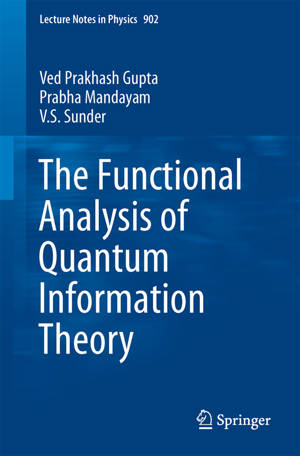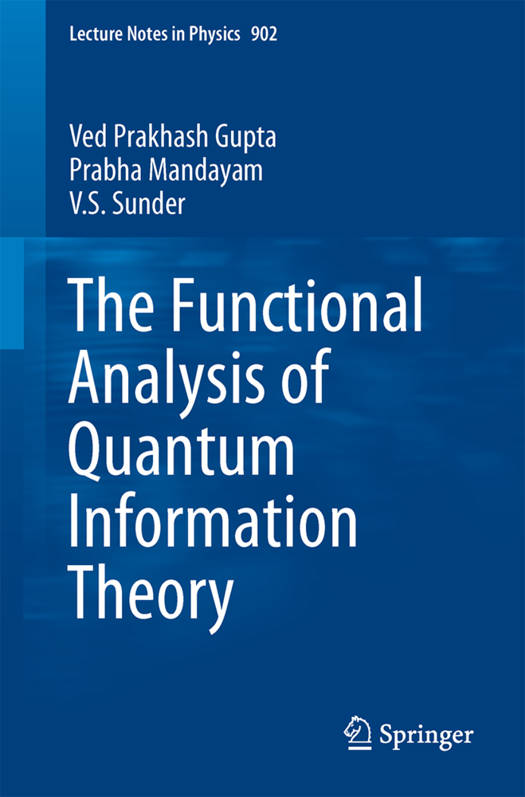
- Retrait gratuit dans votre magasin Club
- 7.000.000 titres dans notre catalogue
- Payer en toute sécurité
- Toujours un magasin près de chez vous
- Retrait gratuit dans votre magasin Club
- 7.000.000 titres dans notre catalogue
- Payer en toute sécurité
- Toujours un magasin près de chez vous
The Functional Analysis of Quantum Information Theory
A Collection of Notes Based on Lectures by Gilles Pisier, K. R. Parthasarathy, Vern Paulsen and Andreas Winter
Ved Prakash Gupta, Prabha Mandayam, V S Sunder
47,45 €
+ 94 points
Description
This book provides readers with a concise introduction to current studies on operator-algebras and their generalizations, operator spaces and operator systems, with a special focus on their application in quantum information science. This basic framework for the mathematical formulation of quantum information can be traced back to the mathematical work of John von Neumann, one of the pioneers of operator algebras, which forms the underpinning of most current mathematical treatments of the quantum theory, besides being one of the most dynamic areas of twentieth century functional analysis. Today, von Neumann's foresight finds expression in the rapidly growing field of quantum information theory. These notes gather the content of lectures given by a very distinguished group of mathematicians and quantum information theorists, held at the IMSc in Chennai some years ago, and great care has been taken to present the material as a primer on the subject matter. Starting from the basic definitions of operator spaces and operator systems, this text proceeds to discuss several important theorems including Stinespring's dilation theorem for completely positive maps and Kirchberg's theorem on tensor products of C*-algebras. It also takes a closer look at the abstract characterization of operator systems and, motivated by the requirements of different tensor products in quantum information theory, the theory of tensor products in operator systems is discussed in detail. On the quantum information side, the book offers a rigorous treatment of quantifying entanglement in bipartite quantum systems, and moves on to review four different areas in which ideas from the theory of operator systems and operator algebras play a natural role: the issue of zero-error communication over quantum channels, the strong subadditivity property of quantum entropy, the different norms on quantum states and the corresponding induced norms on quantum channels, and, lastly, the applications of matrix-valued random variables in the quantum information setting.
Spécifications
Parties prenantes
- Auteur(s) :
- Editeur:
Contenu
- Nombre de pages :
- 139
- Langue:
- Anglais
- Collection :
- Tome:
- n° 902
Caractéristiques
- EAN:
- 9783319167176
- Date de parution :
- 10-06-15
- Format:
- Livre broché
- Format numérique:
- Trade paperback (VS)
- Dimensions :
- 156 mm x 234 mm
- Poids :
- 222 g







